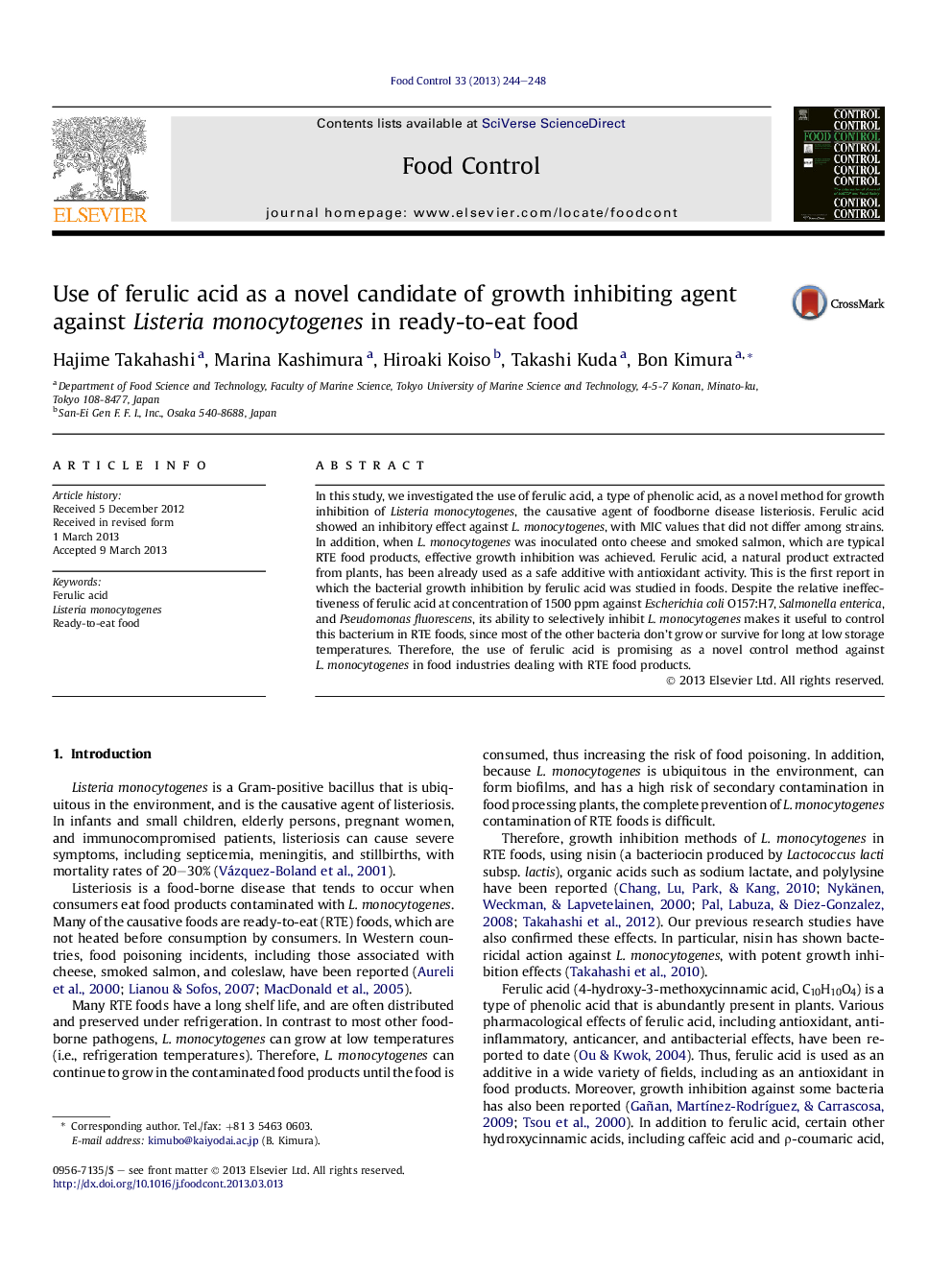| کد مقاله | کد نشریه | سال انتشار | مقاله انگلیسی | نسخه تمام متن |
|---|---|---|---|---|
| 6392522 | 1330440 | 2013 | 5 صفحه PDF | دانلود رایگان |

- We investigated the use of ferulic acid for growth inhibition of L. monocytogenes.
- Ferulic acid showed an inhibitory effect against L. monocytogenes in RTE food products.
- Use of ferulic acid is promising as a novel control method against L. monocytogenes.
In this study, we investigated the use of ferulic acid, a type of phenolic acid, as a novel method for growth inhibition of Listeria monocytogenes, the causative agent of foodborne disease listeriosis. Ferulic acid showed an inhibitory effect against L. monocytogenes, with MIC values that did not differ among strains. In addition, when L. monocytogenes was inoculated onto cheese and smoked salmon, which are typical RTE food products, effective growth inhibition was achieved. Ferulic acid, a natural product extracted from plants, has been already used as a safe additive with antioxidant activity. This is the first report in which the bacterial growth inhibition by ferulic acid was studied in foods. Despite the relative ineffectiveness of ferulic acid at concentration of 1500 ppm against Escherichia coli O157:H7, Salmonella enterica, and Pseudomonas fluorescens, its ability to selectively inhibit L. monocytogenes makes it useful to control this bacterium in RTE foods, since most of the other bacteria don't grow or survive for long at low storage temperatures. Therefore, the use of ferulic acid is promising as a novel control method against L. monocytogenes in food industries dealing with RTE food products.
Journal: Food Control - Volume 33, Issue 1, September 2013, Pages 244-248